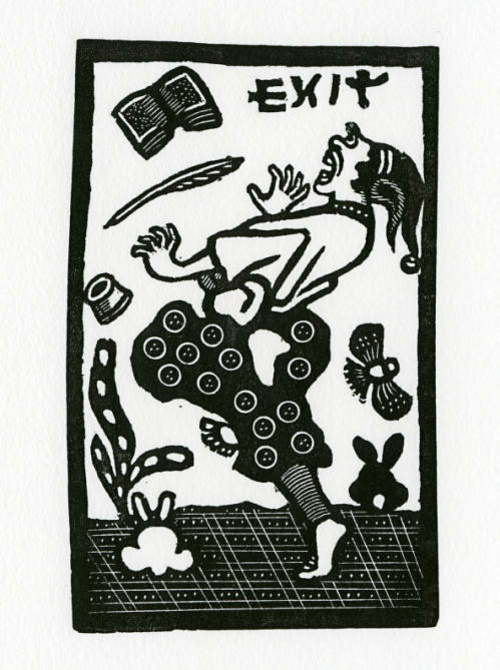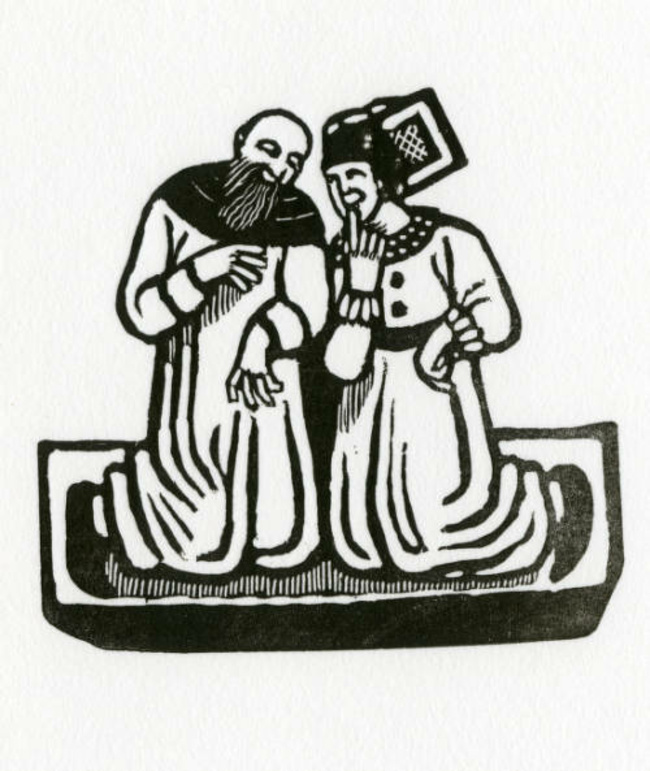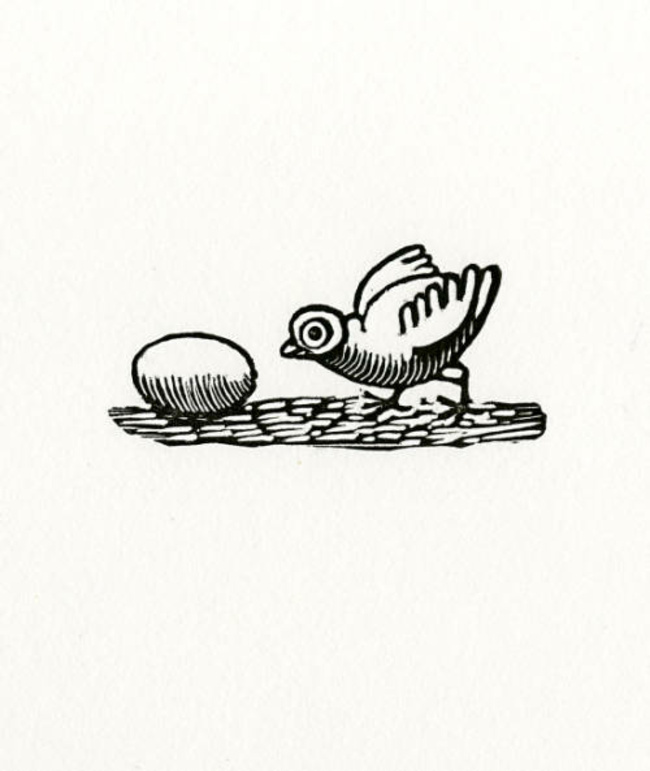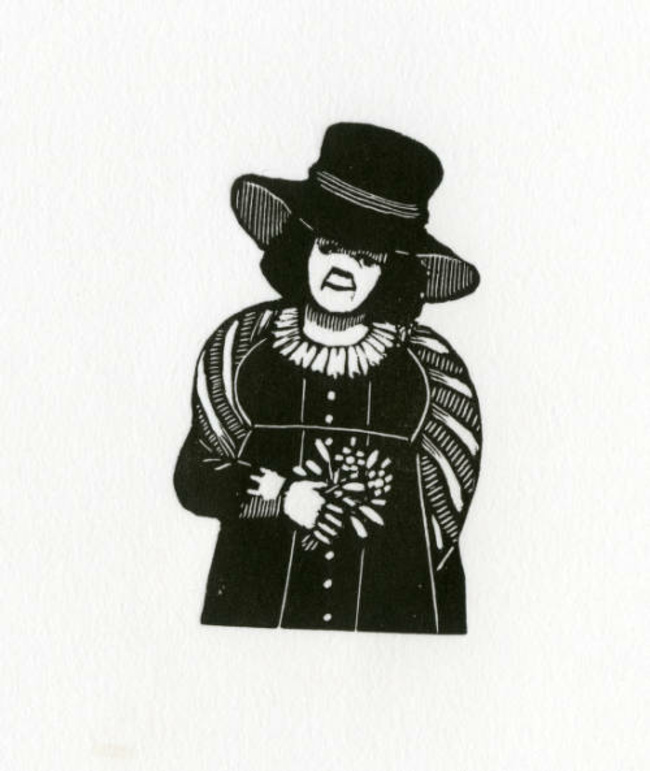'NEW DIRECTIONS IN THE STUDY OF THE BOOK TRADES '- CALL FOR PAPERS
4 DECEMBER 2023

Interested in exploring new research avenues in the history of print? Want to contribute to the discussion? Then check out the call for papers for 2024's annual Print Networks/Centre for Printing History Conference, Unfinished Business: Progress, Stasis and New Directions in the study of the Book Trade since Peter Isaac, Newcastle University, 9-10 July 2024.
All images on this page: ‘Print taken from an original Joseph Crawhall II woodblock’, Crawhall (Joseph II) Archive, Special Collections, Robinson Library, Newcastle University, UK
Professor Peter Isaac (1921-2002) investigated numerous strands of the British book trade. A distinguished professor of Civil and Public Health Engineering at Newcastle University, he also enjoyed a highly regarded career as a print historian and bibliographer. The working group that he founded, The History of the Book Trade in the North, was immensely influential in moving the study of the British book trade beyond the confines of London. More broadly, his work insisted on the value of the local for our national and global understandings of the book trade. He considered the internationally famous engravings of Thomas Bewick; the ornament stocks of the Alnwick pharmacist and printer William Davison; and the inventory of books sold by a Penrith grocer in the seventeenth century to be equally worthy of scholarly attention and careful study.

This conference at Newcastle University invites papers focussing on the British or Irish book trades locally, nationally or in their global contexts, including comparative perspectives. How has research on these trades’ histories developed and advanced, or not, in the past two decades? How has an emphasis on valuing the local, the specific or the seemingly minor been taken up in studies of the book trade? How do such interests sit with the expansion of book trade research into ever larger data-sets and/or within national and global print histories? What are the key social, political and/or technological questions scholars of the book trade are now grappling with? In what fresh directions must the study of the trades now strike out?

Further information and details of how to submit papers on the CPHC website, link here
As usual, Stationers are invited to enter papers for consideration, and please do circulate this call to any friends, family, or passing acquaintances who may be interested in participating!
